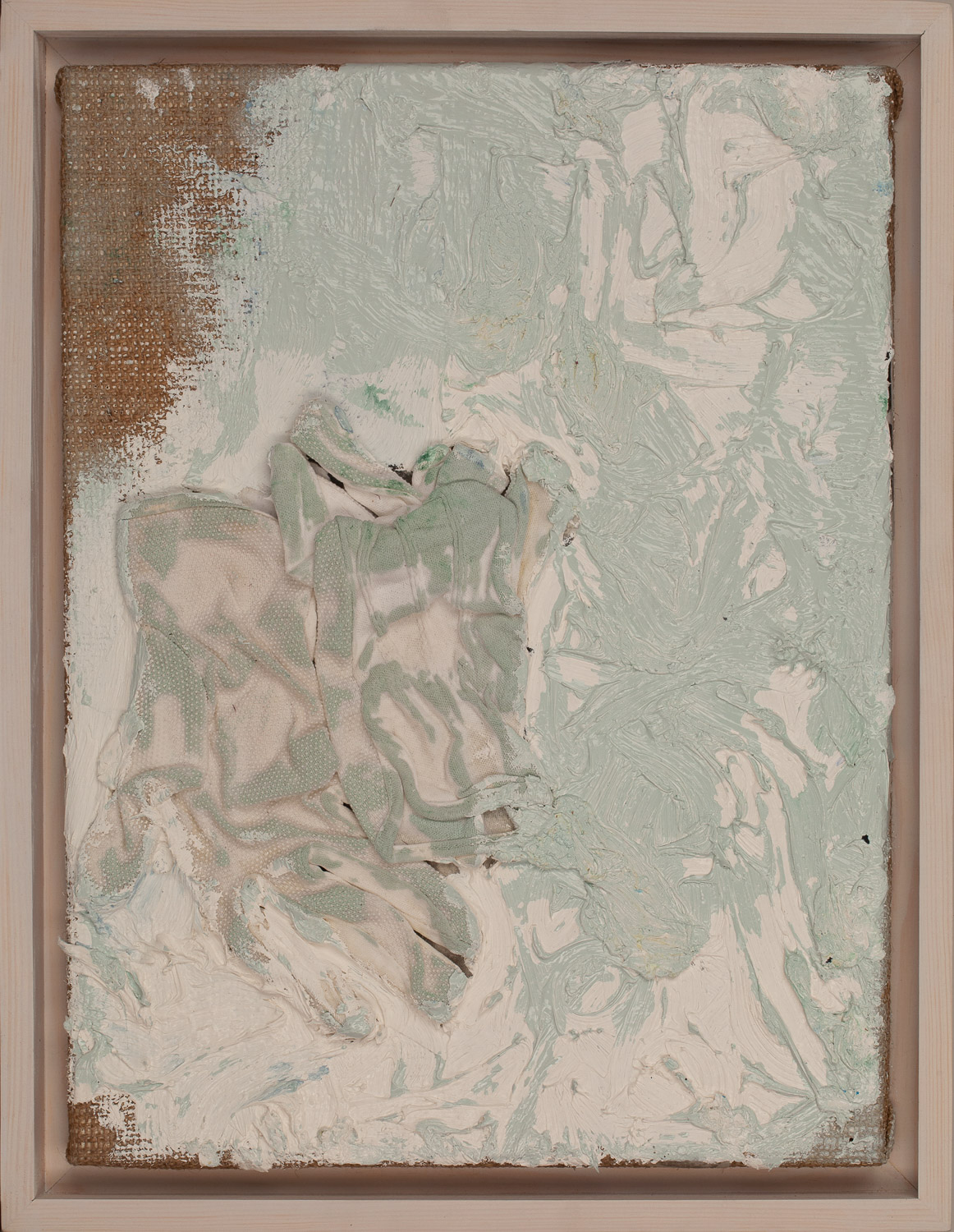The recent works by Jakub Czyszczoń present us with a surprise – the artist whose focus up to this point was centered mainly on the analysis of symbols and fascination with the occult origins of our culture, the author of collages, paintings and prints preoccupied with everyday visual material — introduces himself as an abstractionist.
Interestingly, this departure does not contradict his existing interests, on the contrary, it highlights them even more clearly by condensing their essential traits and shedding new light on the underlying motivations. What seems most crucial in the entire oeuvre of the artist is the issue of copy, repetition, and forgery. A cycle of prints locked in the museum showcases entitled “Counterfeiting money” deals with this subject in an almost metaphorical way — the theme of symbolic white gloves (here soiled by thick black ink) is also (materially) present in the latest cycle of paintings. Counterfeiting money is both a child’s game and criminal fantasy which in the field of art can be interpreted as the forgery of values, the substitution of a fake in the place of the original. Czyszczoń’s current creative attitude can best be described as a gesture of repudiation. Beginning with the soiled gloves, paintings which are a byproduct of his graphic activities, accidental decorative effects, and finally presentations of photocopies in place of original works. This last element— zines authored by the artist, always with a white cover and in a numbered, limited edition of one – seems to be the source of a whole new aesthetic concept, as well as a storage/catalogue of his visual motifs. However, the cycle of paintings representing the core of this latest presentation brings yet another fundamental act of negation. Attractive, bright forms reminiscent of activity in organic matter, are in fact the result of progressive erasures. The present reality, over-saturated with imagery and constantly in the process of communicating, is now scratched off, effaced; as Czyszczoń religiously dissolves, strikes-through, and blends in every trace of inscription, paint or printing ink. His paintings become traces of obliterated meanings. By doing so Czyszczoń is not looking for artistic values in the production of meaning, but for a repetitive gesture of pure anarchy that sets things anew.
